Rohingya refugee camps on the brink of a 'health disaster': MSF
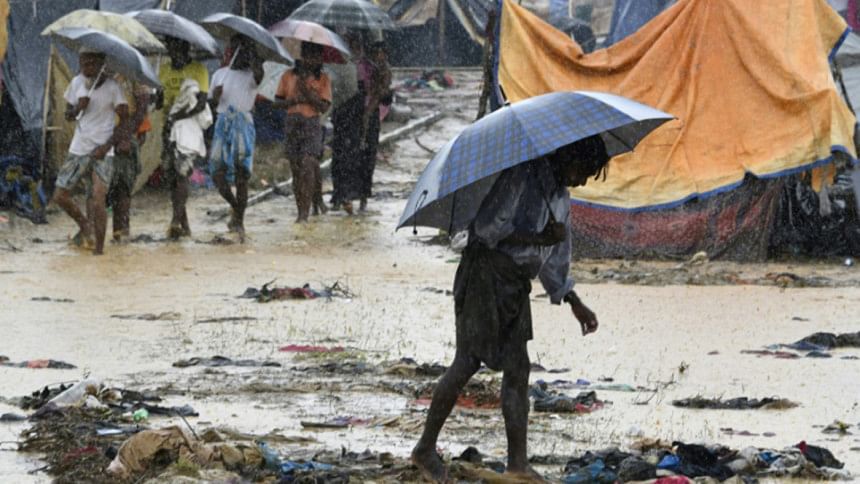
Bangladesh's refugee camps are on the brink of a "public health disaster," Doctors Without Borders (MSF) has warned, saying filthy water and faeces flow through shanties now bursting with Rohinyga Muslims who have fled violence in Myanmar.
More than 420,000 Rohingya have overwhelmed Bangladesh's Cox's Bazar in under a month, seeking refuge following an army-led crackdown across the border in Myanmar's Rakhine state, which the UN has described as "ethnic cleansing".
The weary and wounded arrivals have shocked the world with stories of Myanmar soldiers and Buddhist mobs driving them out of their homes with rape, gunshots and arson.
Meanwhile in Bangladesh, there are dire shortages of nearly all forms of relief in what has become one of the world's largest refugee settlements.
MSF on Thursday warned that a "massive scale-up of humanitarian aid is needed in Bangladesh to avoid a public health disaster".
"We are receiving adults every day on the cusp of dying from dehydration," said Kate White, the group's emergency medical coordinator.
"That's very rare among adults, and signals that a public health emergency could be just around the corner."
There are no official roads into the slum-like settlements that have sprung up outside official camps, complicating aid delivery in the hilly, mud-slicked terrain.
"There is a complete absence of latrines," added White. "When you walk through the settlement, you have to wade through streams of dirty water and human faeces."
With chaotic and patchy food distribution, many Rohingya are only eating one meal of plain rice per day, she added.
Bangladeshi troops were deployed this week to build more toilets and shelters for thousands who still sleeping out in the open despite regular monsoon rains.
Doctors Without Borders warned the risk of an infectious disease outbreak was "very high" given the rapid population increase and low vaccination coverage among the Rohingya, who lived in impoverished conditions in Myanmar.
"One small event could lead to an outbreak that may be the tipping point between a crisis and a catastrophe," said emergency coordinator Robert Onus.
The crisis has heaped global pressure on Myanmar's government to halt military operations in Rakhine state, which was once home to a 1.1-million strong Rohingya population.
The stateless minority has languished under years of discrimination in the mainly Buddhist country, where they are denied citizenship.
On Tuesday Myanmar leader Aung San Suu Kyi signalled a willingess to take back the refugees in a nationally-televised speech.
But she neglected to spell out a clear plan for when repatriation could begin or who would qualify to return.
Even before the latest exodus, Bangladesh was already housing some 300,000 Rohingya refugees who had fled from previous waves of persecution.

 For all latest news, follow The Daily Star's Google News channel.
For all latest news, follow The Daily Star's Google News channel. 

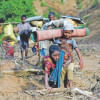

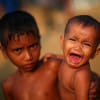
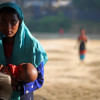
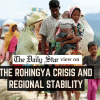


Comments